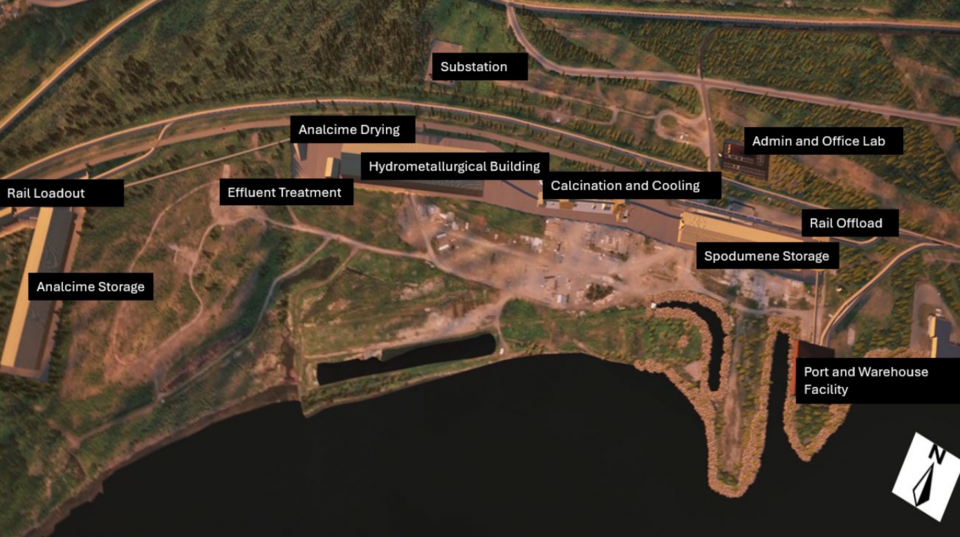One of northwestern Ontario’s major lithium exploration players delivered an update on how its concept for a lithium refinery in Thunder Bay is shaping up.
Avalon Advanced Materials posted a preliminary economic assessment (PEA), Sept. 3, on a lithium hydroxide processing facility project in the city’s north end.
In forecasting the start production in late 2028, the Toronto company said its proposed $4.1-billion plant would have the design capacity to produce 30,000 tonnes of lithium hydroxide, a material used predominately in the production of electric vehicle car batteries, its intended customer base.
The plant would handle spodumene concentrate that arrives from a mine and converts it into a lithium hydroxide monohydrate product.
The cost to build the refinery comes in at $1.3 billion.
To finance this, Avalon said it's continuing discussions with the Canadian and U.S. governments and with “conventional debt and equity groups.”
Timeline-wise, Avalon expects to start production of lithium hydroxide in Thunder Bay by the fourth quarter of 2028 and is counting on the Ontario government to help make it happen by expediting the permitting approvals process. The company said it would need to draw water from Lake Superior.
Avalon is promoting the facility as a regional hub processing plant, handling feed from its own proposed mine at Separation Rapids, north of Kenora, and from other lithium mines in northwestern Ontario that might enter production in the years to come.
A year ago, Avalon brought aboard a technology partner in Metso Corp. of Finland to deploy its innovative and environmentally friendly conversion process. Avalon said in the news release that this process is currently in the test phase.
Overall, Avalon said the PEA makes a compelling economic and financial case to move to the next stage of evaluation by diving more into the details by starting a feasibility study.
The study is based on a spodumene concentrate price of $1,360 per tonne over the estimated 30-year life of the project.
“These results reaffirm our view of the project's robustness and substantial economic potential for the company, province and the country,” said Avalon CEO Scott Monteith in a statement.
“The project is poised to provide high-quality, battery-grade lithium hydroxide to supply Canada’s projected demand from the rapidly growing EV industry.”
The refinery would be situated on the waterfront site of a former pulp and paper mill once owned by Smurfit-Stone, on Strathcona Avenue in the city’s north end. Avalon acquired the property last year.
There, the company has 374 acres where it has access to the Trans-Canada Highway, power connections, a CN Rail connection, and port access.
Rail will be the primary means to deliver spodumene concentrate from its mine and others in the region to the site, as well as deliver reagents used in processing.
The finished lithium hydroxide material will go out by truck and rail to battery manufacturing plants in southern Ontario and elsewhere, Avalon said.
Besides starting the feasibility study, the plan ahead is to start field work for the environmental baseline studies and early engineering work, commence site geotechnical activity, work with Metso on the plant design, secure customers through offtake agreements, and keep the conversations going with First Nation groups, communities, post-secondary institutions and with government.




